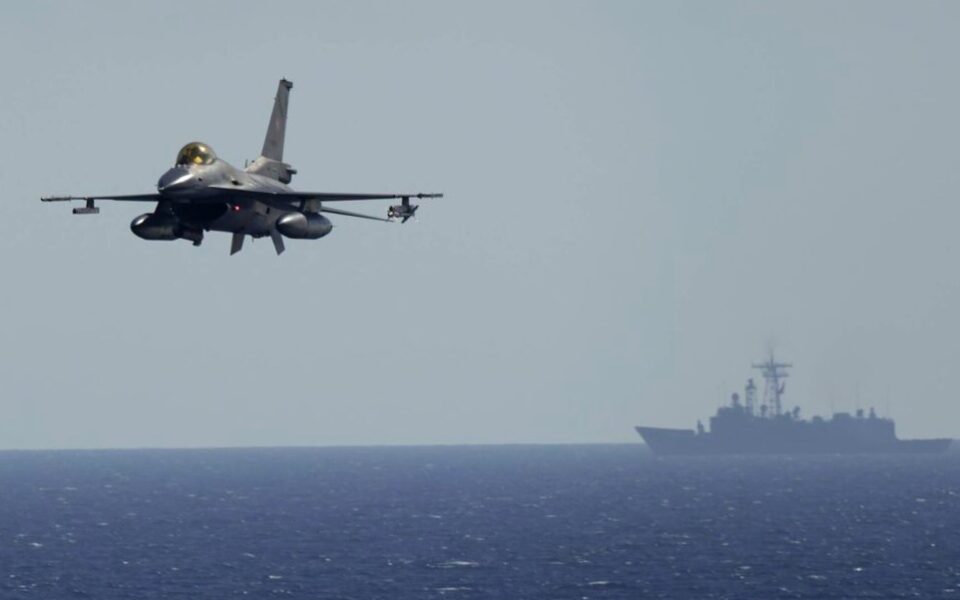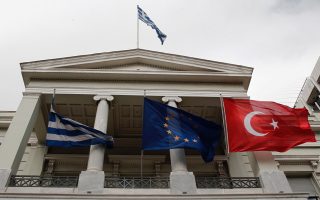East Med described as potential flashpoint
IISS think-tank study refers to turbulent region with some two decades of accumulated tension

The challenges facing Greece and other countries in the region and Turkey’s increasingly aggressive role in the Eastern Mediterranean, with a tendency to become a powder keg for a number of reasons, are the focus of the International Institute for Strategic Studies (IISS) study “Turbulence in the Eastern Mediterranean” and analysis on the geopolitical and security situation in the region.
“Since the mid-2000s, the Eastern Mediterranean basin, made up of Cyprus, Egypt, Greece, Israel and the Palestinian Territories, Lebanon, Libya, Syria and Turkey, has emerged as a key arena in which global geopolitical trends play out. In the past two decades, its mixture of powerful and fragile states, combined with its geographic position between troubled regions and stable ones, has drawn considerable regional and global interest,” it said.
The study describes the Eastern Mediterranean as a strategic flashpoint making reference to nearly two decades of accumulated tension for a number of reasons.
These include, among others, the many disagreements between the states in the region, but also civil wars, the ideological dimension (political Islam), migration, terrorism and the emergence of two revisionist powers (Turkey and Iran). The ambition of Ankara to advance its interests and relations with the West is prominent in the geopolitical landscape, according to the publications of one of the world’s most respected think tanks.
American “disengagement” from the region, Russia’s finger-pointing, China’s growing economic influence and new dynamics due to multiple conflicts in the region are also at the heart of the study – as is the Eastern Mediterranean as a crossroads of trade and as a region for the extraction of energy resources.
Regarding Greek-Turkish relations and Cyprus, it said although a Turkish invasion of the Republic of Cyprus is considered unlikely, “a Turkish annexation” of the entity in the north of Cyprus “is slightly less unlikely.”
“A resurgence of tension and brinkmanship between Turkey on the one hand, and Cyprus and Greece on the other, possibly joined by France, remains a possibility that hangs over the current fragile thaw,” it said, adding that “Turkey’s muscular power projection and ambitions are seen as an existential threat by Cyprus and as an overriding one by Greece, and have defined a decade of frenetic geopolitical competition in the region.”
Turkish President Recep Tayyip Erdogan’s attempt, it stressed, to create a legacy at least comparable to that of Kemal Ataturk creates the potential for a new escalation in the sea with Greece and Cyprus.




